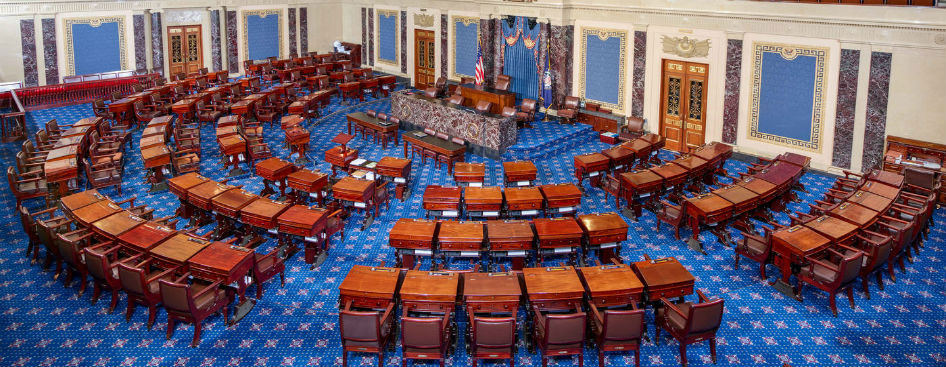In full transparency, the following is a press release from the Massachusetts Senate President’s office.
***
[broadstreet zone=”59982″] |
BOSTON – The Massachusetts State Senate took final action to override a series of gubernatorial vetoes on the state budget for fiscal year 2022 today, September 30.
In restoring key provisions of the budget, the Senate will ensure that a greater portion of the Commonwealth’s vulnerable populations receive vital support from the state, that long-term studies of poverty and higher education affordability are carried out, and that regional transit authorities are sufficiently funded to emerge from the global COVID-19 pandemic, along with other items.
“The Massachusetts Senate will never waiver in its commitment to people of the Commonwealth,” said Senate President Karen E. Spilka (D-Ashland). “By overturning these vetoes, we take one more step forward in our work to build a Commonwealth that is more inclusive, affordable and open to all – holding true to the spirit of the budget we passed earlier this year. I would like to thank Chair Rodrigues, the entire Ways and Means committee, and my colleagues in the Senate for carefully balancing and debating a budget which will take us ‘back to better’.”
Having passed the House and Senate, the above provisions are now law.
[broadstreet zone=”59983″] |
“The votes we took today to override all of the Governor’s vetoes helps to maintain the integrity and the spirit of the Fiscal Year 2022 budget conference committee agreement reached in July,” said Senator Michael J. Rodrigues (D-Westport), Chair of the Senate Committee on Ways and Means. “I want to thank the Senate President and my colleagues for taking these actions that are consistent with this Legislature’s support for a forward-looking budget plan. Whether it’s investing in regional transportation, helping individuals and families in need of assistance, supporting our retirees or modernizing our tax code, our collective actions today reinforced our support for a state budget that has left our Commonwealth in a much stronger fiscal position than before the COVID-19 pandemic.”
[broadstreet zone=”59984″] |
Included in the FY22 budget are provisions which eliminate asset limits for two programs which offer support to the Commonwealth’s most vulnerable populations: Emergency Assistance to the Elderly, Disabled and Children (EAEDC) and Transitional Assistance to Families with Dependent Children (TAFDC), which helps families with housing-related difficulties. Asset limits on these programs create arbitrary barriers to entry for families in need of assistance, preventing them from receiving money that they could spend on education, job training, reliable transportation, home expenses, and other emergency needs. Additionally, removing the asset limits protects families in poverty from being removed from these programs when they still need assistance and improves administrative efficiency by simplifying the application review process. The actions of the Senate today ensure that the asset limits for both eliminated.
The Senate also voted to restore to $94 million funding for Massachusetts’ Regional Transit Authorities.
[broadstreet zone=”70106″] |
Final action was also taken to restore a revenue-positive pass-through entity excise tax which would generate $90 million for the state and save Massachusetts taxpayers up to $1.12 billion in federal taxes.
Provisions voted on today also act to modernize the state’s tax code. The FY22 budget included these provisions to remove certain tax credits which no longer serve their intended purpose, based on recommendations from a recent report by the Senate-championed Tax Expenditure Review Commission. These tax credits are claimed by only a few large companies and, according to the report, do not provide a measurable return on investment or identifiable benefit to the state.
Items geared toward long-term solutions for fighting poverty and the rising cost of higher education also faced gubernatorial vetoes. Included in FY22 budget were a Special Commission on Poverty and a Higher Education Affordability Task Force. The Special Commission on Poverty will bring together advocates and experts to explore demographic disparities, analyze historical rates of poverty, identify the underlying causes of poverty in the Commonwealth, and survey existing state programs for their effectiveness, culminating in presenting policy recommendations.
[broadstreet zone=”70107″] |
Similarly, the Higher Education Affordability Task Force will bring together stakeholders from public and private institutions of higher learning, including community colleges, as well as members of the business community who have a vested interest in maintaining a well-educated and prepared workforce, to analyze rising college costs and propose solutions to the legislature. By overriding the Governor’s veto on these items, the Legislature will ensure these important commissions can commence their work.
Also restored, following vetoes by the Governor, were two provisions pertaining to the Department of Conservation and Recreation (DCR). One provision exempts DCR’s Division of Water Supply Protection from restrictions or limitations on staffing levels and hiring, allowing the Division to adequately prepare for its role in protecting our drinking water. Another provision would require the DCR to obtain local approval prior to collecting parking fees in a local jurisdiction, affording municipalities the opportunity to offer input and collaborate on a parking plan with DCR that would be mutually beneficial.
Finally, the actions of the Senate would raise the cap on hours a retiree may work annually from 960 hours to 1,200 hours.
[broadstreet zone=”59947″] |

